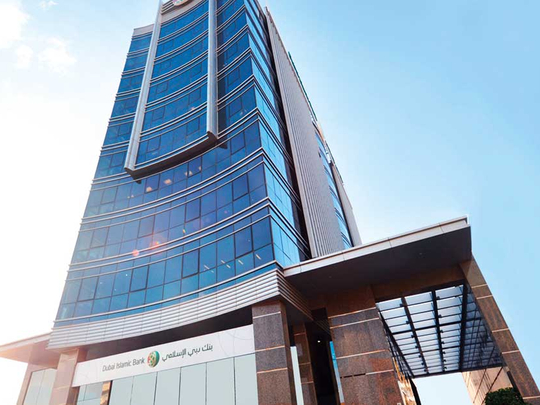
DUBAI: Dubai Islamic Bank (DIB), the largest Islamic bank in the UAE by total assets, yesterday reported a group net profit of Dh1.04 billion for the first quarter ended March, up 4 per cent compared to Dh1 billion for the same period in 2016.
Bank’s total income increased to Dh2.37 billion, up 13 per cent compared with Dh2.1 billion for the same period in 2016.
“The UAE economy saw a strong start to 2017 following the stabilisation of commodity prices and continuation of infrastructure spending around all key areas. Capitalising on a strong beginning, all key metrics for the bank have shown robust growth,” said Mohammad Ebrahim Al Shaibani, Director-General of the Ruler’s Court of Dubai and Chairman of DIB.
DIB’s net operating revenue for the first quarter increased to Dh1.80 billion, up 7 per cent compared with Dh1.69 billion for the same period in 2016. Net financing assets rose to Dh121.4 billion up by 6 per cent compared to Dh114.9 billion at the end of 2016. Sukuk investments increased to Dh24.2 billion, up 4 per cent year-on-year and total assets stood at Dh186.9 billion, an increase of 7 per cent, compared to Dh174.9 billion at the end of 2016.
“Over the last few years, we have focused on not only growing our business, but also on solidifying our position in the market. Today, the bank is clearly recognised as not just a leader in Islamic finance but a prominent and leading franchise within the entire banking sector in UAE,” said Dubai Islamic Bank Managing Director, Abdullah Al Hamli.
The bank reported strong liquidity position with customer deposits at Dh137.2 billion at the close of the first quarter of this year compared to Dh122.3 billion at the end of 2016, up by 12 per cent. CASA [current and savings account] constituted 37 per cent of total deposit base. At the close of the quarter, financing to deposit ratio stood at 88 per cent.
“Liquidity continues to be a key factor in driving growth and the last quarter has once again witnessed DIB’s ability to generate and mobilise deposits as needed. Though pressure may continue on cost of funding, it is expected to be relatively muted in 2017. With a 6 per cent rise in core financing assets, liquidity ratio of 88 per cent and constantly improving asset quality, DIB is very well positioned to further penetrate and increase the share of wallet in its existing operative segments,” said Dr Adnan Chilwan, Group Chief Executive Officer of Dubai Islamic Bank.
The bank reported a decline in impairment losses to Dh169 million compared with Dh118 million for the same period last year. Cost-to-income ratio declined to 32.8 per cent compared with 33.7 per cent for the same period in 2016. Bank’s asset growth and asset quality remained robust in the first quarter. Net financing assets rose to Dh121.4 billion up by 6 per cent, compared to Dh114.9 billion at the end of 2016. Total assets stood at Dh186.9 billion, an increase of 7 per cent, compared to Dh174.9 billion at the end of 2016.
Overall asset quality continued to be resilient with NPA (Non-Performing Asset) ratio continuing its downward trajectory improving to 3.7 per cent, compared to 3.9 per cent at the end of 2016. Provision coverage ratio improved to 118 per cent, compared to 117 per cent at the end of 2016. Overall coverage including collateral at discounted value now stands at 160 per cent, compared to 158 per cent at the end of 2016.











